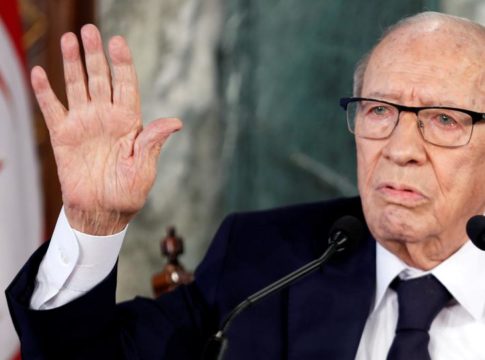Following the death of Tunisia’s President, Beji Caid Essebsi, at age 92, the world will be closely monitoring the upcoming Tunisian presidential era.
MEO, dedicated this article to shade the light on significant aspects related to Tunisian economic model, its history, current situation, forecasts.
First it is important to mention that Tunisia enjoyed the highest per capita income of an Arab country that its economy doesn’t depend on petroleum industries.
Tunisia is a relatively small country, with relatively limited resources; mainly based on agriculture, cultivating dates and olives.
For many years, since 1956, Tunisia has been vigorously working hard to achieve major economic development; however the revolution , which took place in 2011,
affected its developmental plan.
The beginning of the developmental plan started by the previous Tunisian President Habib Bourguiba. The first step that was taken was applying a wide plan on the
national level for family planning and birth control; with a small country that possess limited resources this was a smart move to start with.
The first sector that Tunisia invested in was the tourism sector, as its borders are close to Europe this was an edge to be taken into consideration.
Furthermore, Tunisia established a special institute specialized in teaching the basis of administration and management; this institute graduates exactly 30 graduates only every years; from these graduates the eligible candidates are picked to fill the governmental positions.
Tunisia started to strengthen its economic resources, by making the best use of its borders through establishing free zones based in strategic areas; they made the best use of the working force they have; they build factories around their borders, while importing the raw materials, with no shipment fees, and manufactured the goods and export it to various countries.
Being a country with minimal or no regional conflicts, they spend less on the armed forces.
Tunisia also invested a lot in its educational system; it’s a country with almost zero illiteracy rate.
One of the smartest economic moves that the Tunisian government took was establishing a banking system that would make almost 80% of the population own
their residential unites; no reselling is allowed; at the same time the banking system facilitates a lot of procedures for the buyers. The plan is by 2020, 100% of the Tunisian residents will own their residential units.
According to MEO source Egypt can benefit from this Tunisian economic move and apply a strict system that will ban the reselling of units, which has been taking place within the real estate sector in Egypt; people tend to buy from the government with low prices and resell the units after a couple of years with very high prices. “This is not for the benefit of the Egyptian economy,” noted the source.
Another successful economic step was removing the customs that should be paid on imported cars. They set a law that allows Tunisian citizens, with limited budgets to import a car free from customs while paying its installments up to 7 years.
Furthermore the car insurance is paid along with the taxes, so almost all cars are in good shape in Tunisia.
According to MEO source, this is really an economic move that must be applied in Egypt, which suffers from cars customs that been vigorously escalating!.
Another important economic step that Tunisia focused on, is water conservation; the government built almost 160 small dams in order to preserve the water; they also established a special unit that supervise water conservation all over Tunisia.
The present economic challenges in Tunisia can be summarized in two important points, the high unemployment rate and the GDP slow down.
There is no doubt that the Tunisian revolution in 2011, resulted in high unemployment rate, that increased following the revolution, causing a slow down in economic development.
This year, economic analysts indicated that GDP growth slowed to a three-year low in the first quarter of the year on declining agricultural and industrial output, as well as a feeble external sector—which remained tepid in Q2, according to trade data up to May. However, in better news, the unemployment rate decreased to a one-and-a-half-year low in Q1.
Furthermore, IMF signed off on a much-needed USD 245 million loan to the Tunisian government, which forms part of a four-year USD 2.9 billion support program agreed to in 2016. The Fund urged the government to continue improving the fiscal and external deficits to “overcome the otherwise unsustainable debt dynamics.
In the long-term, the Tunisia Unemployment Rate is projected to trend around 15.80 percent in 2020, according to our econometric models.
The “Economist” forecasted that Tunisia will hold national elections in October-December 2019 and political instability will remain high until a new government is
formed. Tough economic conditions will push young Tunisians towards extremism, increasing the risk of terrorist attacks. The government will tread carefully in
implementing fiscal reforms for fear of stoking public unrest but will move ahead with some of them to keep the IMF on side. Economic growth will pick up in 2021-23, but unemployment will remain high.


